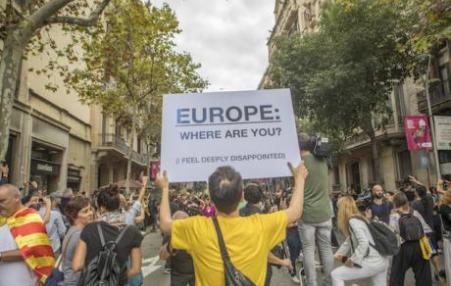Global Left Midweek - August 1, 2018
Portside
 Only a handful of European states are currently governed by left-wing governments, and several of the traditionally largest left-wing parties, such as the Socialist Party in France, have experienced substantial drops in support. Jan Rovny argues that while many commentators have linked the left’s decline to the late-2000s financial crisis, the weakening of Europe’s left reflects deep structural and technological changes that have reshaped European society, leaving left-wing parties out in the cold.
Only a handful of European states are currently governed by left-wing governments, and several of the traditionally largest left-wing parties, such as the Socialist Party in France, have experienced substantial drops in support. Jan Rovny argues that while many commentators have linked the left’s decline to the late-2000s financial crisis, the weakening of Europe’s left reflects deep structural and technological changes that have reshaped European society, leaving left-wing parties out in the cold.
 The impasse in forming a government in Germany has dragged on since election day, September 24th – often like a traffic gridlock, hardly moving forward. But Germany is Europe’s main central power – and with no proper government! Angela Merkel still acts as boss, the old ruling cabinet holds on as caretakers, but it’s all on borrowed time, with no legitimacy.
The impasse in forming a government in Germany has dragged on since election day, September 24th – often like a traffic gridlock, hardly moving forward. But Germany is Europe’s main central power – and with no proper government! Angela Merkel still acts as boss, the old ruling cabinet holds on as caretakers, but it’s all on borrowed time, with no legitimacy.
 Retail work does not have to pay poverty wages. New study compares work in Europe and the U.S. For all the power of market forces, from automation taking over routine tasks to globalization squeezing retailers’ margins, there is nothing inevitable about low-quality retail jobs. Social norms and political institutions can make them better, or worse.
Retail work does not have to pay poverty wages. New study compares work in Europe and the U.S. For all the power of market forces, from automation taking over routine tasks to globalization squeezing retailers’ margins, there is nothing inevitable about low-quality retail jobs. Social norms and political institutions can make them better, or worse.
Spread the word